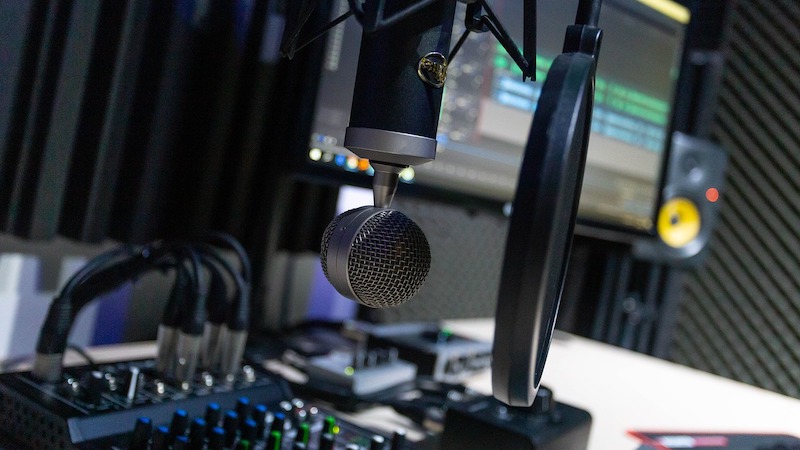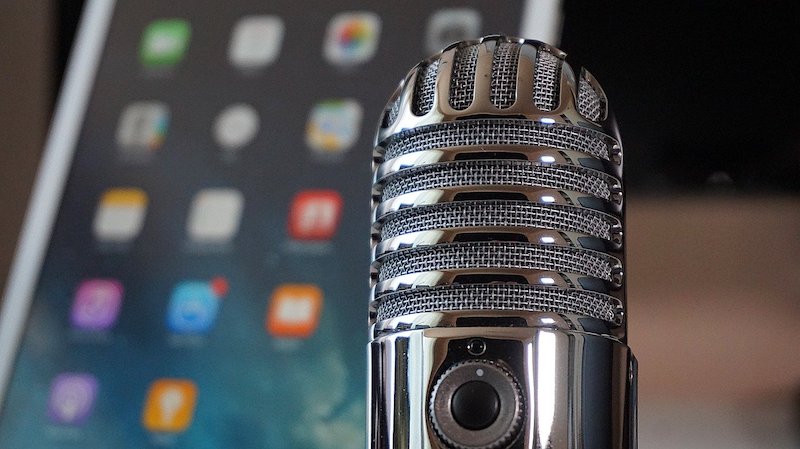The video editor for podcasters Get unlimited 15-second videos for free
5 Tips for Improving Your Podcast Interviews
Why are some podcast interviews so much fun to listen to, and why do you immediately want to tune away from others? Because conducting good interviews is a skill! Fortunately, interviewing is a skill that you can learn and hone. Read on to find out how you can improve your interviewing techniques for your podcast.
A great podcast interview seems effortless. Ideally, good interviews sound like two people talking about very interesting topics, their conversation flowing smoothly from one subject to the next while they have a lot of fun.
In reality, however, conducting a great interview is not as easy as it sounds. It takes some practice, and you have to be prepared. In order to help you to improve your skills, we have put together five tips for conducting better interviews for your podcast.
1. Pick your guests wisely
Usually, the responsibility for conducting a good interview for your podcast lies on you. However, there is also such a thing as a bad interview guest. Some people might be very knowledgeable but get terribly nervous when they know they are being recorded. Others might feel very comfortable in an interview setting but come across as being arrogant. So, do some research before picking a guest for a podcast interview.
You also should only invite guests that you are personally curious about. If you interview somebody just because they are famous, but you have no genuine interest in them, your listeners will notice because the conversation will probably be very stiff since it is actually very hard to fake interest.
In order to avoid guests that are a bad fit for your podcast, we also recommend having a pre-interview process. This could be a conversation on the phone or even a short test recording where you go over some general topics you will talk about. This will not only give you a better idea about what a guest might sound like on your podcast, but it will also help your guest to prepare better for the interview.
2. Be a good listener
Sometimes, when conducting an interview, people focus more on the list of questions they have prepared and less on the flow of the conversation. And while it’s good to have questions prepared, it’s even more important to listen to what your guest has to say. If you just jump from one question to the next, there will be no natural flow to the interview, and it will sound more like an interrogation than a conversation. Also, you can miss important points or undertones that might be worthwhile to explore in more depth.
For example, if you are interviewing an athlete for a podcast episode about motivation and they mention how one time they almost didn’t participate in a race, it could be more interesting for your listeners if you explore what happened and find out how the person got over their fears instead of moving on to your next prepared question.
So, make sure that you have a script and a general direction for your interview to keep it moving, but allow for some flexibility as well. This will take some practice. One way to become more spontaneous is to prepare general topics of conversation rather than writing out full questions. It will make it easier to move smoothly from one subject to another instead of getting stuck on individual questions.
Finally, it’s also important to listen attentively, because sometimes guests might say something that is too technical or unclear. So, make sure to pay attention and ask them to explain what they mean if you think your audience might not understand it.
3. Don’t be afraid to ask for more details
If somebody agrees to be a guest on your podcast, it means that they are willing to share their knowledge or experience with your listeners. However, many interviewees tend to give very general, short answers when they are asked questions.
So, don’t be afraid to ask for more details by asking not only for the what, but also for the how and the why. It will give your interviews more depth and help your listeners to understand the topic better.
4. Find your own angle when asking questions
Even the most experienced guests will give you rehearsed answers if you ask them the same questions that everybody else before you has also asked them.
This usually doesn’t make for very interesting interviews. So, instead, think about what you want to get out of a conversation, and find your own angle on a topic when you ask your guests a question. This will usually result in more interesting answers, and overall, in better interviews.
5. Promote the interview
Some podcasters think that once they record and edit an interview, they are done. This can be very short-sighted because an important part of hosting a successful podcast interview is to make your guests feel good about it too.
After all, they put a lot of time and effort into talking to you. So, show your appreciation by promoting the podcast interview. By sharing the interview on your blog or social media sites, you not only show your guest that you care, you also increase the number of people who will listen to the interview.
When promoting a podcast interview on social media, think of creative ways to share the episode; if you just share the link, most people probably will scroll right past it. So, try including pictures or sound bites, or create an audiogram to get even more attention.
Audiograms combine an image, the wave form, and a sound bite into a short video clip, and they are a great way to get people interested in listening to your podcasts since they really stand out on social media. Web tools, like Audiocado, can help you to create cool audiograms in just a few minutes. Try Audiocado out for free now!


